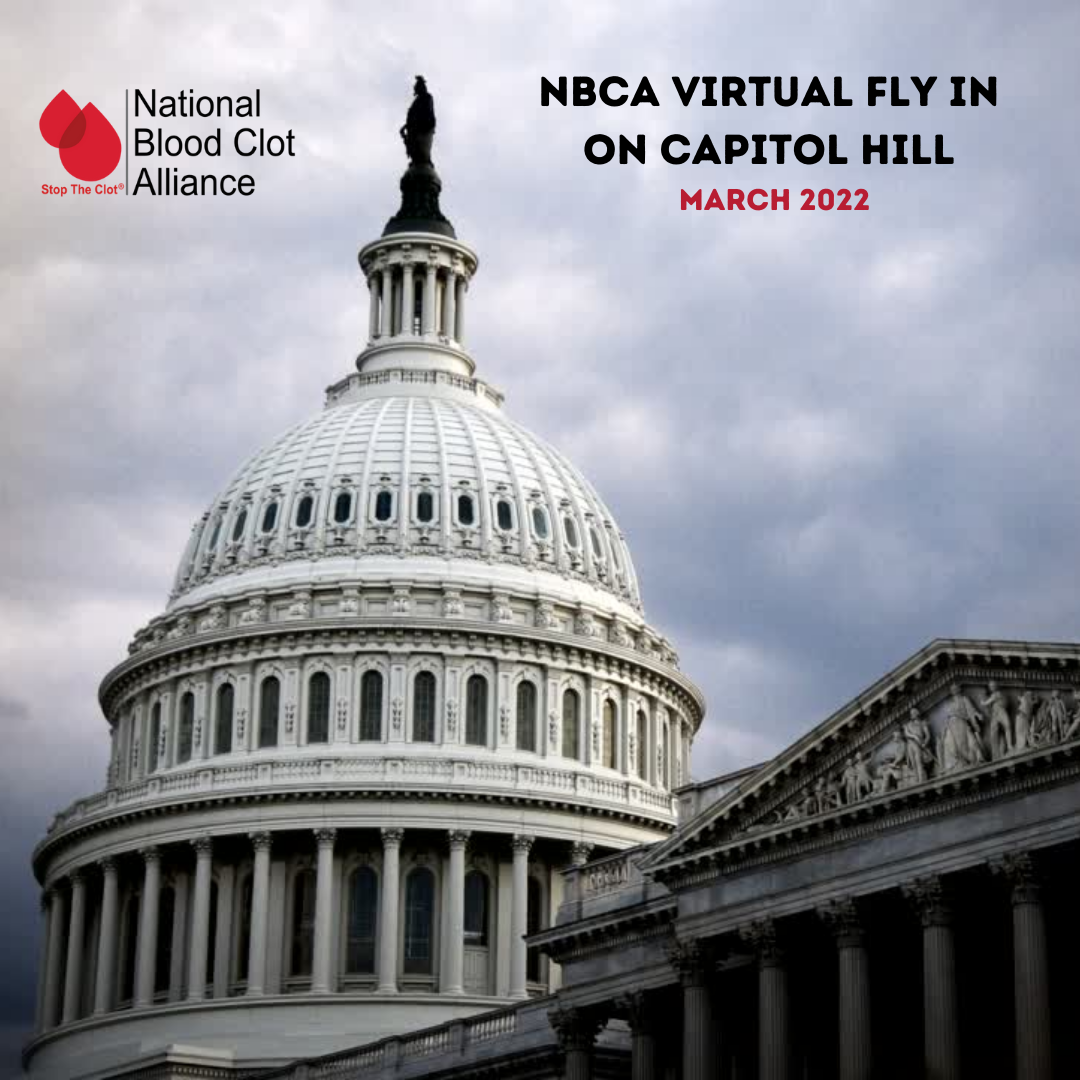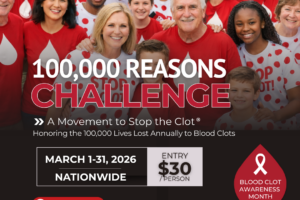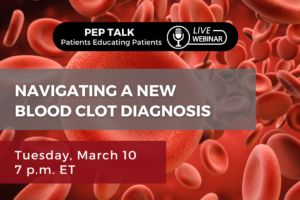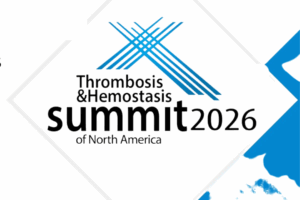The National Blood Clot Alliance (NBCA) organized a virtual fly-in on Capitol Hill last week. Patients, clinicians, and patient advocates met with over 30 House and Senate offices to promote much needed awareness and funding for life-threatening blood clots. The team met with elected officials across the nation during Blood Clot Awareness Month to educate them about blood clots; the approximately 900,000 people who suffer a blood clot every year, and the 100,000 preventable deaths. Every one minute someone in the US is diagnosed with a blood clot and every six minutes someone dies, yet blood clots are highly preventable and treatable with more education and awareness efforts.
According to Dr. Caroline Cromwell, NBCA Medical and Scientific Advisory Board member, Assistant Professor of Medicine, Icahn School of Medicine at Mount Sinai, and pulmonary embolism survivor, “Blood clot deaths are on the rise and the mortality rate of Black patients is consistently higher than that of Whites. Women are also particularly vulnerable to blood clots, due to the risks associated with oral contraceptives, pregnancy/childbirth, and hormone replacement therapy. However, blood clots can and do affect anyone regardless of age, gender, ethnicity, or race.”
Despite the significant number of people impacted by blood clots, federal funding for blood clot education and awareness efforts directed towards the general public and health care providers is woefully low. NBCA is advocating for increased funding directed to the Division of Blood Disorders within the Centers for Disease Control and Prevention, to combat this public health crisis.
According to Leslie Lake, President of the National Blood Clot Alliance and a blood clot survivor herself, “More lives are lost to blood clots each year than HIV/AIDS, breast cancer, prostate cancer, and car accidents combined; yet less than 6% of people know what a blood clot is.” According to Lake, “Increased funding for blood clot education and awareness efforts will have a significant impact on driving down the high incidence and death rates, as well as reducing the societal cost of blood clots, estimated to be between $10 and $15 billion each year. NBCA calls on both the House and Senate to approve funding for blood clot awareness and education efforts in FY23. The time is now, this is a major healthcare crisis that has gone unrecognized and underfunded for too long.”
The National Blood Clot Alliance (NBCA) is a nonprofit organization focused on advancing the prevention, early diagnosis, and successful treatment of life-threatening blood clots. For information visit www.stoptheclot.org.
Media Contact
Tarin Patrikis, Deputy Director







